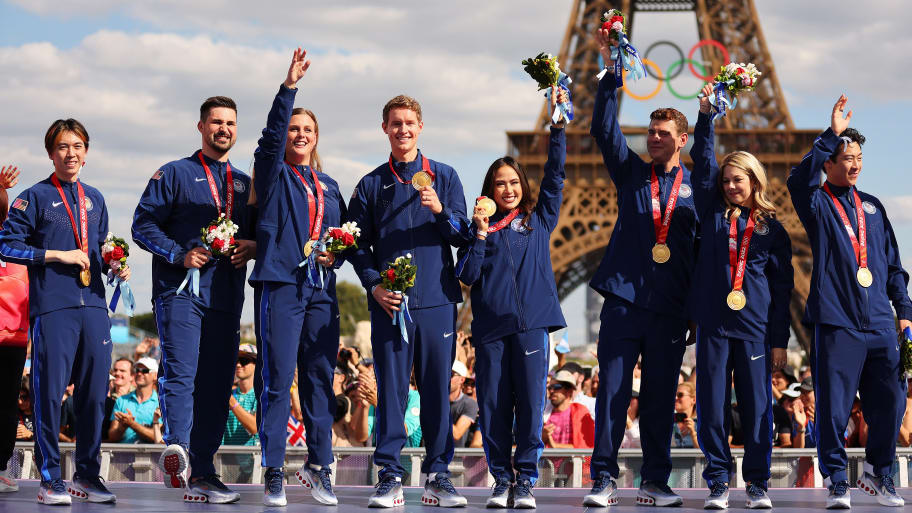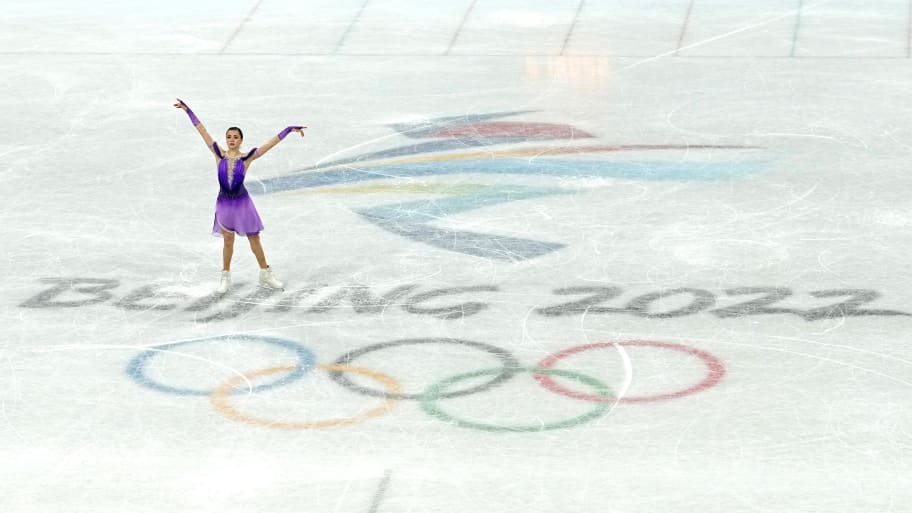
PARIS – The ceremony was not about doping. For clean athletes, the Olympics never are. Doping frustrates, it disheartens and it distorts, but ultimately, what the athletes who talk about doping really want is to not talk about it at all. Eight American figure skaters received their gold medals here Wednesday, Winter Olympians getting 2022 medals at the 2024 Summer Games. Russian doping was the reason for the delay, but it was not the reason for the ceremony. The Americans got gold medals because they won the team event in Beijing.
“It symbolizes a lifetime of hard work,” skater Madison Chock said. “It means a lot to us, and we’re very grateful that we got to do it.”
If you don’t remember the roundabout way we got here, then here is a recap. Before the Olympics, Russian star Kamila Valieva tested positive for trimetazidine, a banned supplement. The Court of Arbitration for Sport inexplicably ruled Valieva was eligible for the Olympics. Then the IOC decided if Valieva won anything, no medals would be awarded. If Valieva’s performances had counted, the Russians would have finished first in the team event, ahead of Team USA. After various challenges and legal processes, Valieva was retroactively ruled ineligible, the Russians fell to third place without her scores, and the Americans won gold.
To outsiders, flying Winter Olympians across an ocean just to give them their medals might seem excessive—or a way for the United States Olympic & Paralympic Committee to put the Russians in their place. To the athletes, it was just a way to give them their medals. Think of how many athletes step onto the medal podium and leave in a puddle. It happened to Scottie Scheffler last week.
The podium means so much to athletes that in Beijing, the Americans weren’t sure which medals they would get. Their families weren’t there because of COVID-19 restrictions and skater Karen Chen still said, “I was really looking forward to being on the podium with my amazing teammates. … I would love, even if we don’t get our medals, just to stand on the podium.”
They had to wait two-and-a-half years for their gold medals, but Paris can make any wait worthwhile. It was a sunny day—too hot, surely, to be wearing their Winter Olympic team warmups, but they did anyway. The stands at the Trocadero were packed. The video board flashed the names of the Americans who won gold and the Japanese skaters who won silver. Across the river, the Eiffel Tower … was … um … the Eiffel Tower. That was enough.
Chock, Evan Bates, Karen Chen, Nathan Chen, Zachary Donohue, Brandon Frazier, Madison Hubbell, Alexa Knierim and Vincent Zhou all sounded like they would give the experience the greatest possible review.
“I feel almost privileged in a way because there’s many people who, you know, deserve the same thing and won’t get it,” Zhou said.
They noted how much has changed since Beijing. Hubbell has a newborn baby. In Beijing, Chock and Bates were dating; now they are married. Zhou has been attending Brown University and interning at a financial services firm.
“I left my summer internship a week early,” Zhou said. “But I got all my work done.”

The only sign of the Russians was that they weren’t here to receive their bronze medals and for good reason: Russia is banned from these Summer Olympics. But what happened to Valieva is still incredibly sad.
Russia’s state-sponsored doping scheme started before the 2014 Olympics in Sochi. Valieva was 7 years old. When she skated in Beijing, she was 15. Her official defense was that she accidentally ingested her grandfather’s medication. A much more plausible explanation is that she didn’t even know she was doping—or that if she did, she had no choice. People who say no to Vladimir Putin often end up dead.
After the positive test, Valieva should never have been allowed to compete in Beijing. But we have no idea how she would have done if she had been clean all along. The Russian government is the villain of this story; Russian athletes, many of them, are victims.
This should not detract from the Americans’ experience Wednesday, and it didn’t. They got what they deserved—finally.
This article was originally published on www.si.com as Figure Skating at the Summer Olympics? No, Just a Long Overdue Medal Ceremony.







